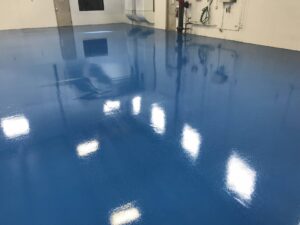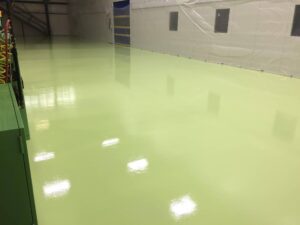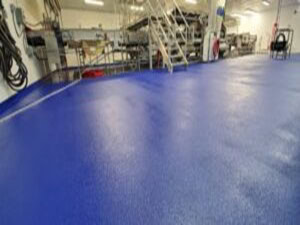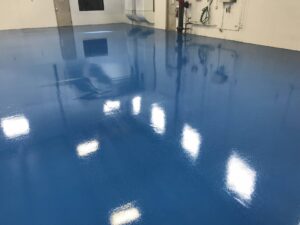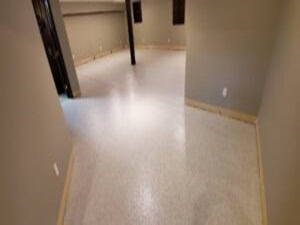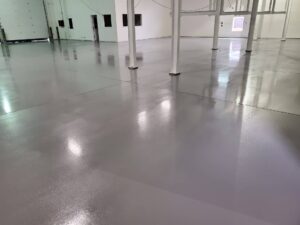Food Processing Epoxy Flooring
Epoxy coating is ideal for meeting the physical requirements as well as USDA and other federal regulations that are needed for running a successful food processing and distribution enterprise.
Federal Regulations
The food processing industry is strictly regulated and has to meet federal government standards. Federal laws are formulated to ensure that food processing facilities have flooring that is durable and yet also meet hygienic standards. Their flooring must also be capable of handling regular foot traffic and harsh conditions.
In addition, this flooring needs to be quick and easy to clean and meet USDA regulations for seamless flooring that reduces bacteria and mold growth. These regulations may also require the use of integral, sanitary cove base where flooring meets walls with a radius that helps with cleaning these areas that are particularly prone to bacteria growth
Other specific issues in the food processing industry include those that occur when actually processing and working with food products. Keeping all areas of a food processing industry clean is a key chore. During processing, certain food byproducts can end on the floor – examples include fats, oils, blood, sugar, and acids up.
Cleaning
A major challenge that involves having the exact correct type of floor coatings is that of maintaining cleanliness. The coating has to be deal with potentially corrosive liquids and fluids and be able to withstand regular high-pressure cleaning and thermal shock.
Rigorous Conditions
Meat packing facilities, which contain frigid freezers and walk-in coolers, require flooring that can handle extreme hot and cold temperatures. Commercial kitchens – and even cafeterias-and wineries – must be able to handle the acids contained in oils, sugars, and even dairy products, which can break down lesser floor coatings and may require urethane cement rather than epoxy.
These facilities also need flooring that inherently possess stain-fighting capabilities and provide skid/slip protection. The flooring has to help prevent the development of nasty odors, especially those which can be absorbed into food products, make them unfit for consumption and necessitate waste disposal.
Resistance to Thermal Shock
Daily maintenance in food processing facilities includes washing floors with very hot water or steam to remove blood, grease, and chemical contaminants from the surface of the floor. Most plants operate at cooler temperatures, yet the floor will be subjected to thermal shock – where the cool floor is suddenly exposed to temperatures at 180 degrees Fahrenheit or more.
Conventional floor materials may not be able to handle these drastic temperature changes and can crack or delaminate from the concrete base. Thermal shock resistant flooring surfaces, such as urethane cement, can withstand thermal shock from these extreme temperature fluctuations and are often resistant to vapor transmission rates of up to 20 pounds.
Handling Temperature Variation During Application
Temperatures can vary throughout a food processing location. One part of the facility can have cool or cold extremes while other areas are warm or even hot conditions. The floor coating must be structured to handle both hot and cold temperatures, while curing as well as when it is in regular production use.
Columbus Epoxy Flooring has the experience and the processes to successfully install food processing floors that are durable and engineered to last for years.
We install food industry flooring that will
- Allow for uninterrupted production and prevent downtime for replacements and repairs
- Be durable enough to resist abrasions from carts, forklifts, and other heavy machinery
- Aid in avoiding possible liability issues because it is engineered to be slip-resistant, so fast-moving employees are less likely to get injured from falls and slips




